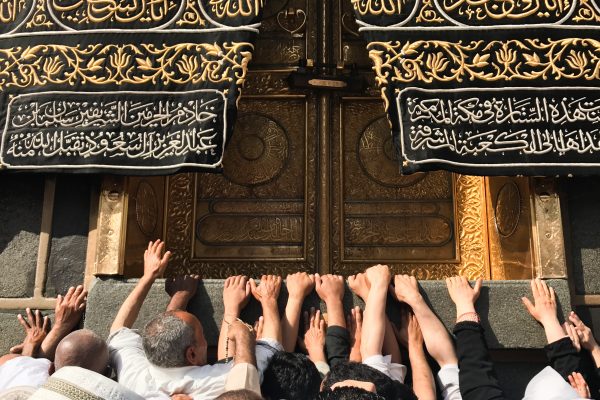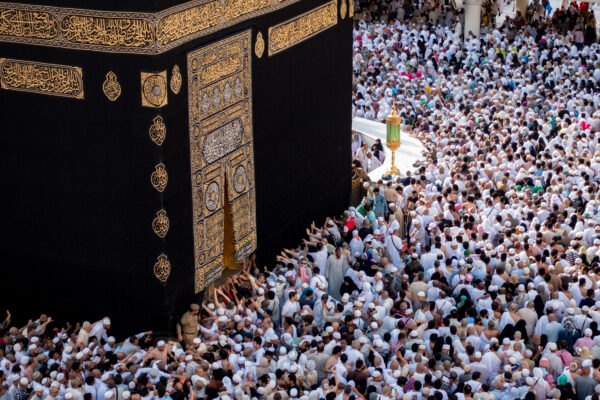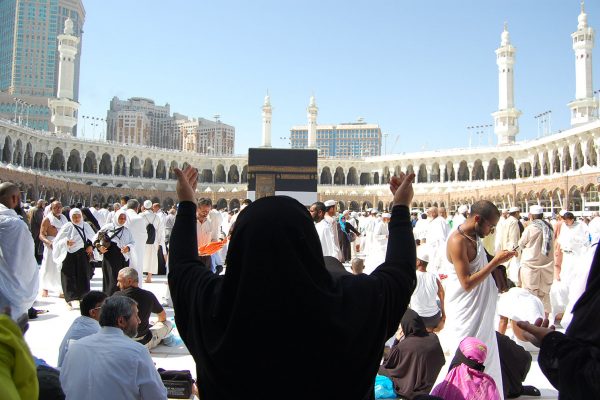We’re five days into Dhul Hijjah and, this Jumu’ah, millions of Muslims will begin their Hajj rituals. We wish we could be with them in the holy city of Makkah and we pray that their pilgrimages are accepted.
For those of you who couldn’t make it to Hajj this year, our YouTube series The Prophetic Steps is full of brilliant, exclusive footage from Makkah (courtesy of Islam Channel), and contains everything you need to know about the Hajj. As you watch these videos, you will be transported to the Jamarat in Mina, the Mountain of Mercy in ‘Arafat, and the cave where the Qur’an was first revealed over fourteen hundred years ago, in a truly incredible journey!
Even though you won’t be experiencing these things in person this year, in sha’ Allah, you will get a sense of what millions of pilgrims are experiencing at this very moment.
Here’s a taste of this amazing video series, beginning at the Prophet Muhammad’s (saw) grave in Madinah:
SubhanAllah, what a moving experience! Many of the pilgrims will travel to Madinah before or after performing their Hajj in order to visit the beloved Messenger of Allah (saw) and give their salaams and the salaams of their family to him.
Although many pilgrims will already be in Makkah to perform their ‘Umrah, the actual Hajj doesn’t begin until Friday 8th Dhul Hijjah. Pilgrims will enter into Ihram (a state of mind where certain actions, such as fighting or cutting one’s nails, are forbidden) and travel to Mina, reciting the Talbiyah frequently. They will spend the day and night in Mina praying and making du’a, leaving for ‘Arafat after sunrise on Saturday 9th Dhul Hijjah.
The Prophet (saw) said:
Hajj is ‘Arafah'”
[Nasa’i]
The Day of ‘Arafah is the most blessed day of the year and it is the pinnacle of the Hajj journey. Just like Laylatul Qadr is the most special night of the last ten nights of Hajj, ‘Arafah is the most special day of the first ten days of Dhul Hijjah.
This is a day of intense repentance and seeking Allah’s forgiveness – it is so important for us to pack du’as into this day, that pilgrims will combine and shorten their prayers so they have more time to seek Allah’s repentance. Standing on the plains of ‘Arafat, facing the Qiblah, they will ask Allah for His forgiveness and, in spite of a lifetime of sins and giving in to Shaytaan’s temptations, Allah in His infinite love and mercy will forgive them all.
After sunset, pilgrims will leave ‘Arafat and travel to Muzdalifah, where they will spend the night under the stars. After praying Fajr, they will stand facing the Qiblah and make du’a until the morning light is widespread (as you can see, a lot of Hajj is spent in making du’a on praying)! Then they will travel to Mina once more, where they will stone the large Jamarah (pillar) and their animal will be sacrificed.
This stoning and Qurbani commemorates the actions of Prophet Ibrahim’s (as) family, when they submitted to Allah so completely that they were willing to sacrifice Prophet Isma’il (as), Ibrahim’s (as) eldest son. This was in spite of Shaytaan repeatedly trying to tempt them away from this path. The love of Isma’il (as) and his parents for Allah was so great that they were willing to make this ultimate sacrifice, and the sacrificial animals of Eid-ul-Adha symbolise our own willingness to do whatever Allah asks of us, no matter how great it is.
After Qurbani, while the rest of us are celebrating Eid with new clothes, delicious food, and visiting family, pilgrims will travel back to Makkah to perform Tawaf once more. They will circle the Ka’bah seven times, pray in Al-Masjid Al-Haram, drink Zamzam water and run between the hills of Safa and Marwah. Then they will return to Mina to perform the penultimate rite of Hajj – stoning the Jamarat over two days to reject Shaytaan once more.
Finally, it will be time for the pilgrims to leave. Their Hajj is complete except for one step – the Tawaf al-Wida’, the Farewell Tawaf. One final time, each pilgrim will circle the Ka’bah and bid it farewell before leaving Makkah behind. Their Hajj journey is complete, but in sha’ Allah, its effects will linger long after they have returned home. If their Hajj is accepted, their sins will now be completely erased and they will be changed people in the eyes of their family and friends.
We hope this article was informative and answered any questions you may have head about Hajj. Please visit our YouTube channel to see the rest of this series, including behind-the-scenes footage of the making of the Kiswah and exhibitions at the museums of Makkah and Madinah.





